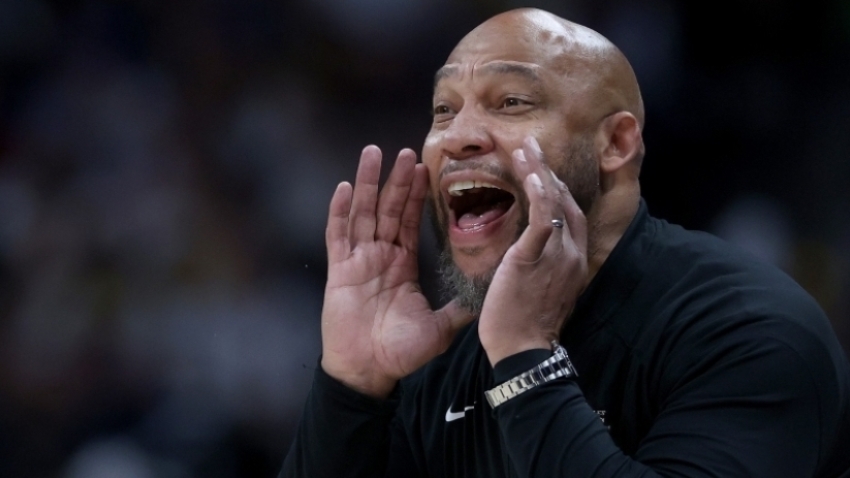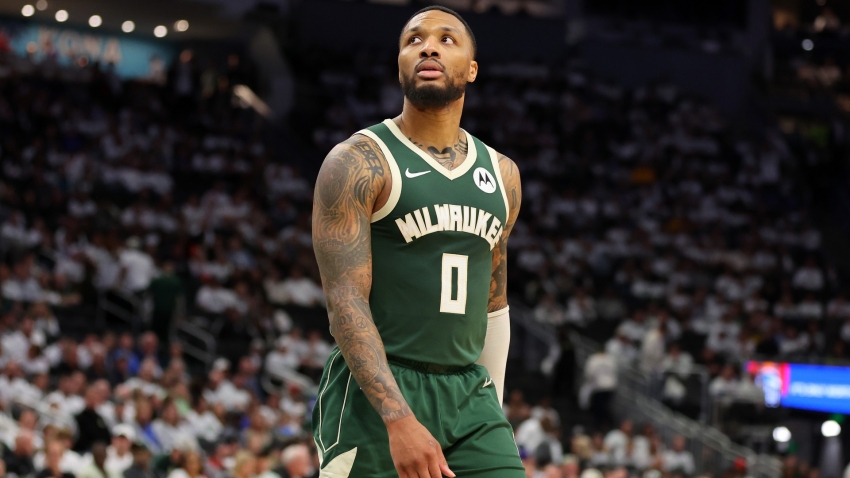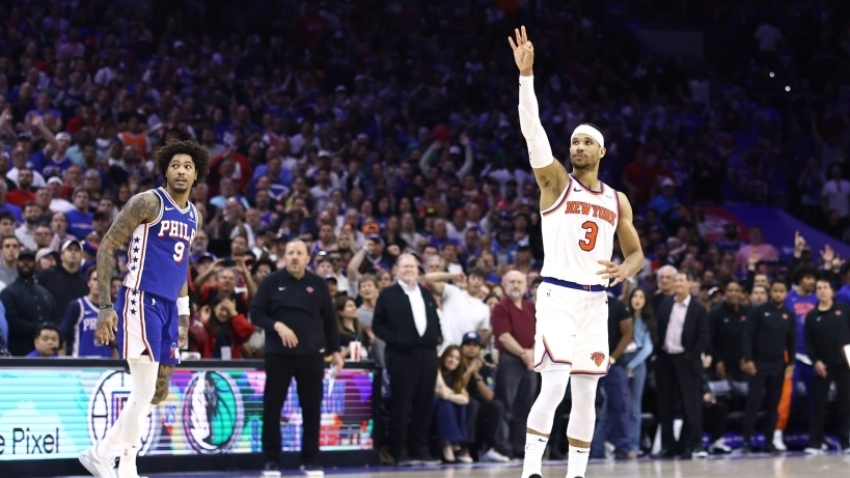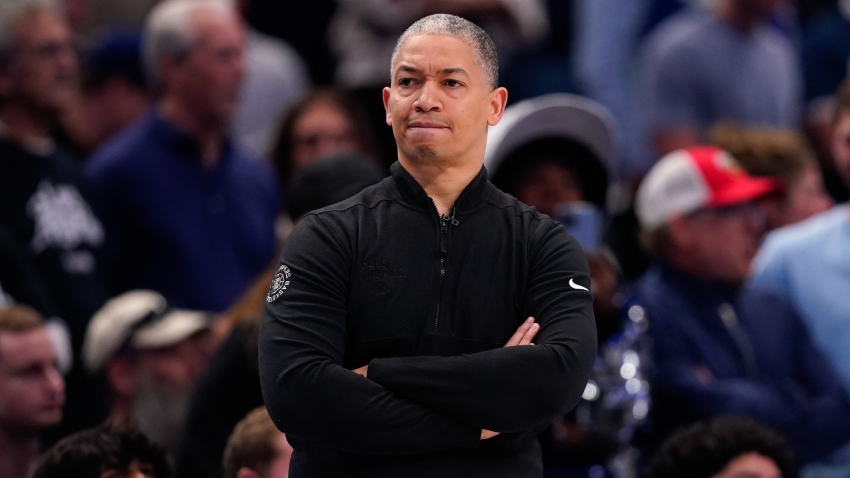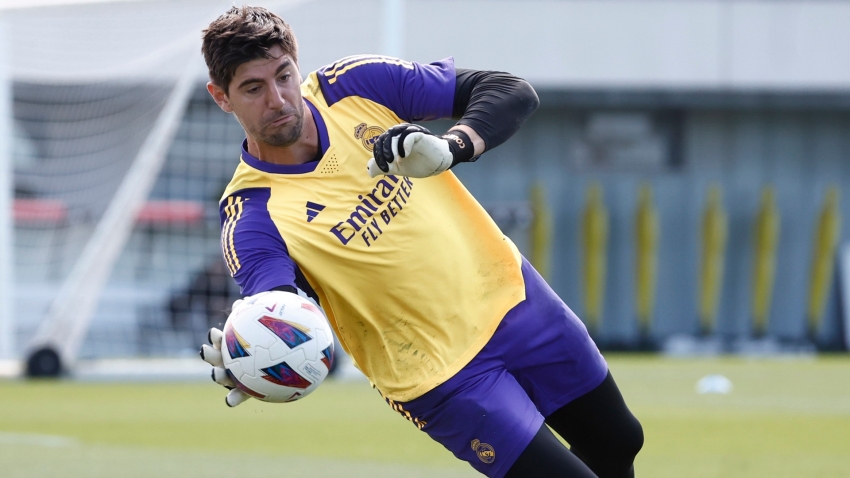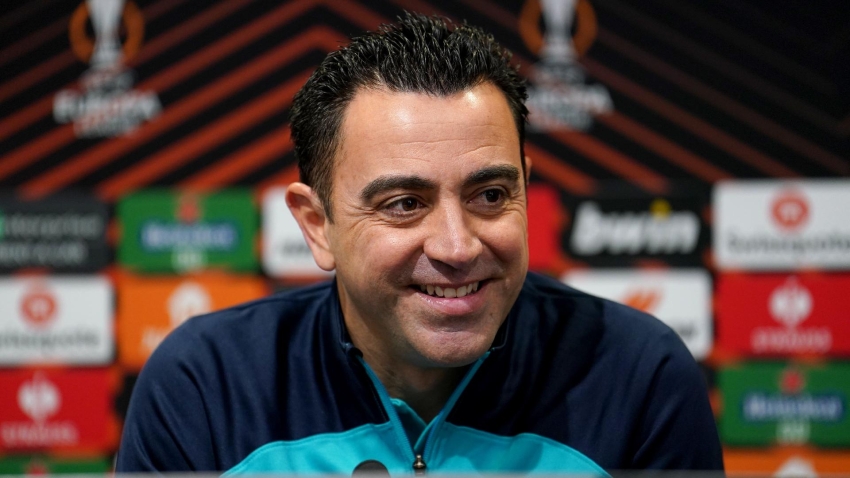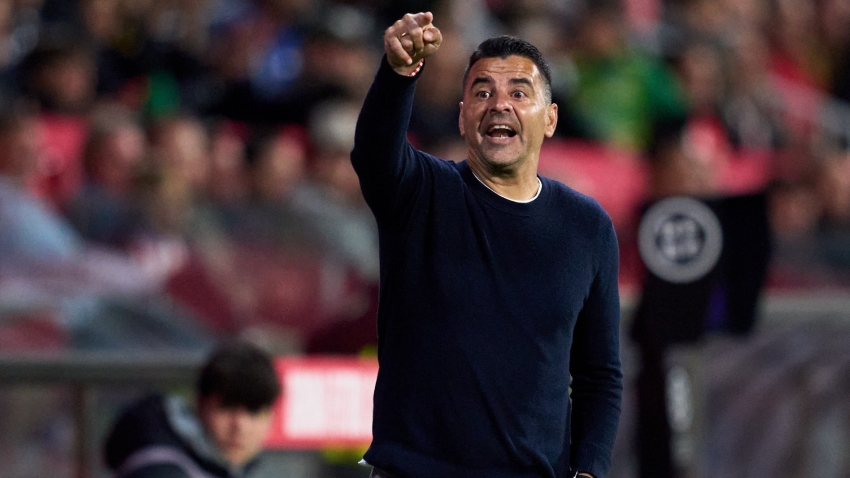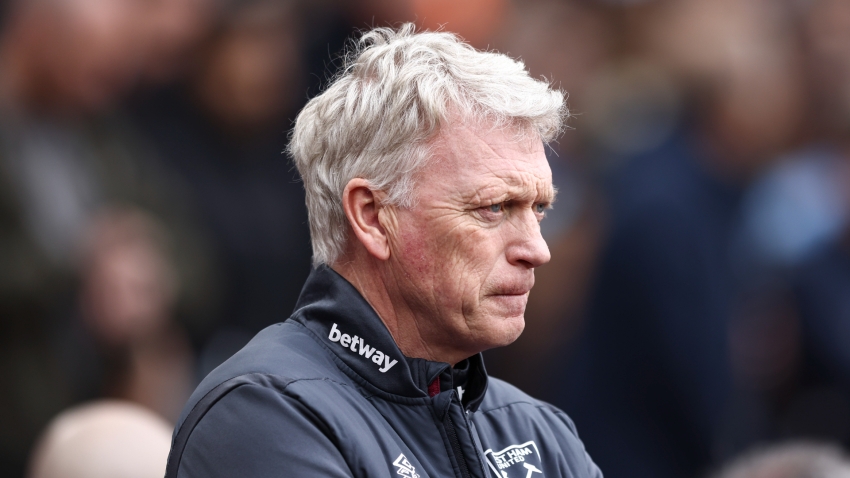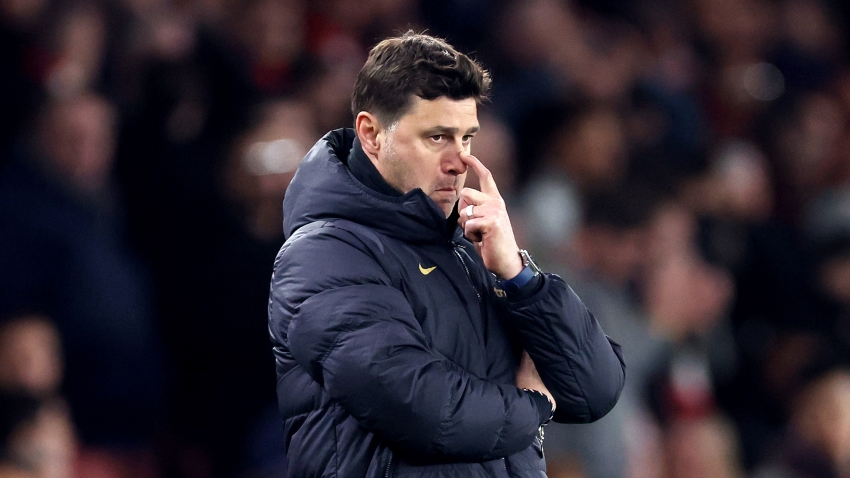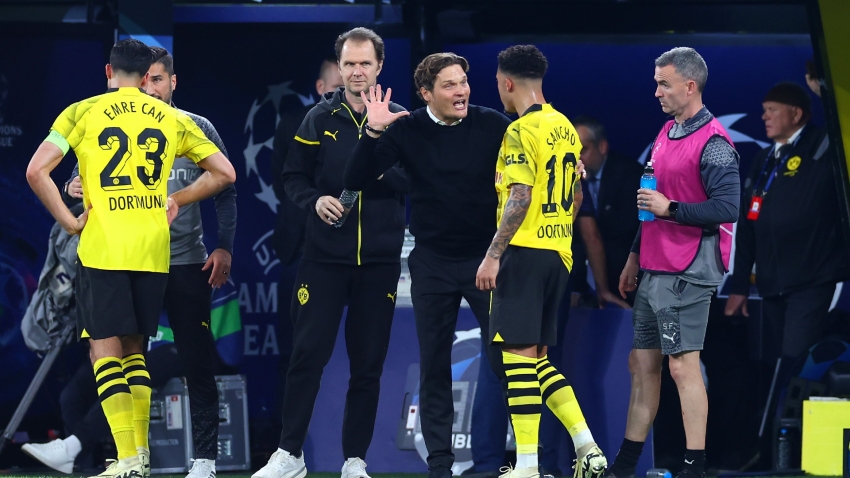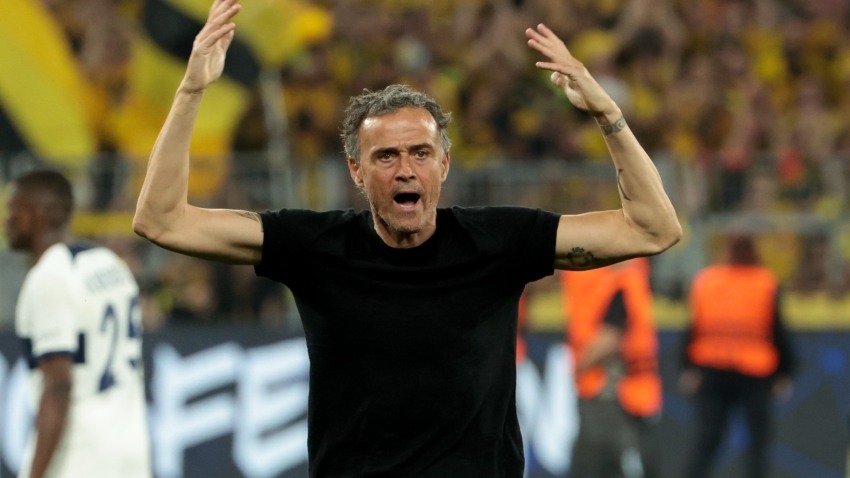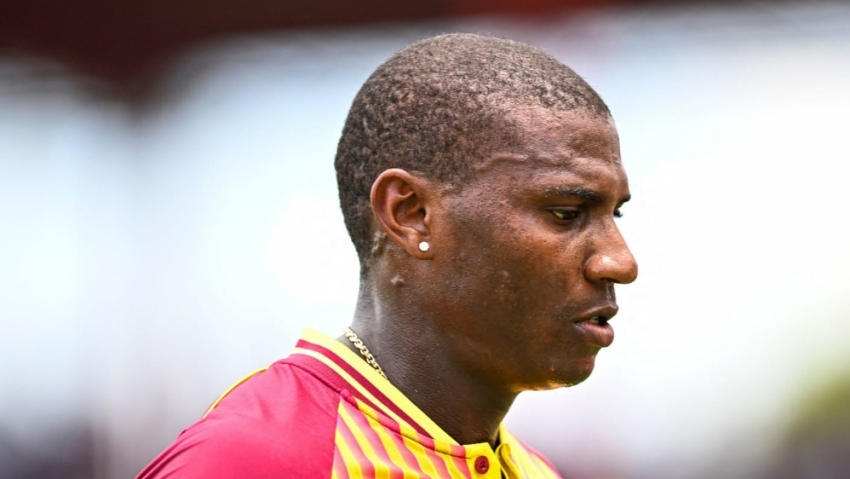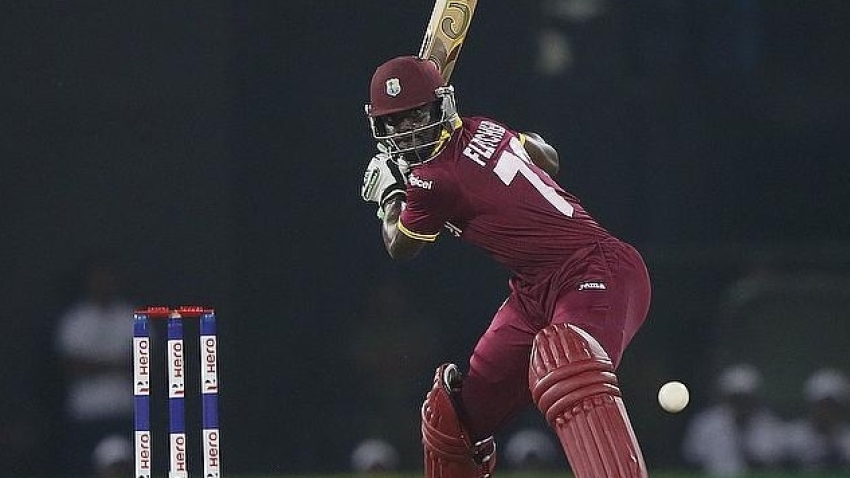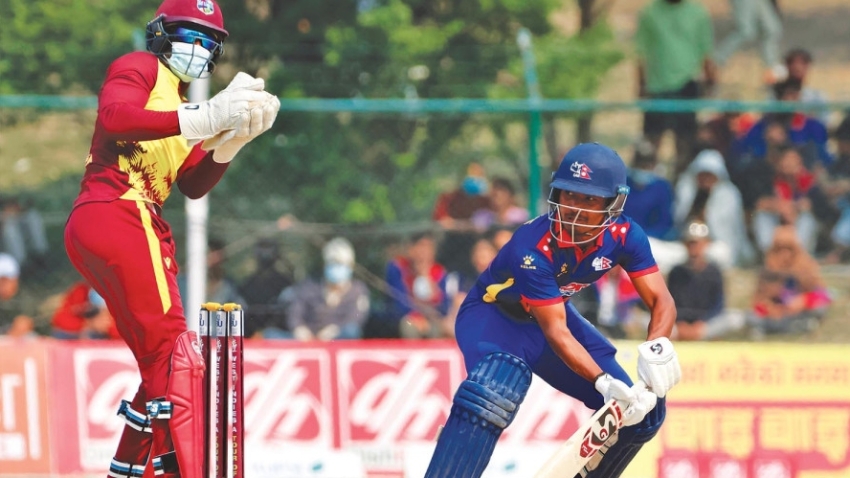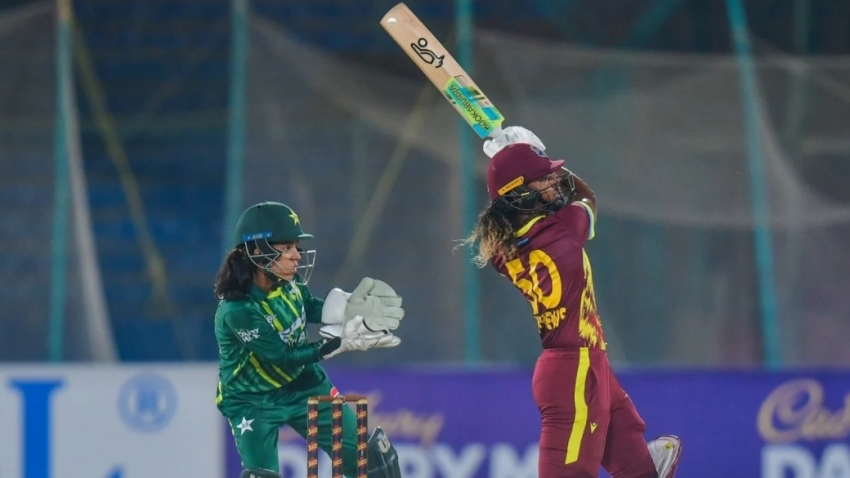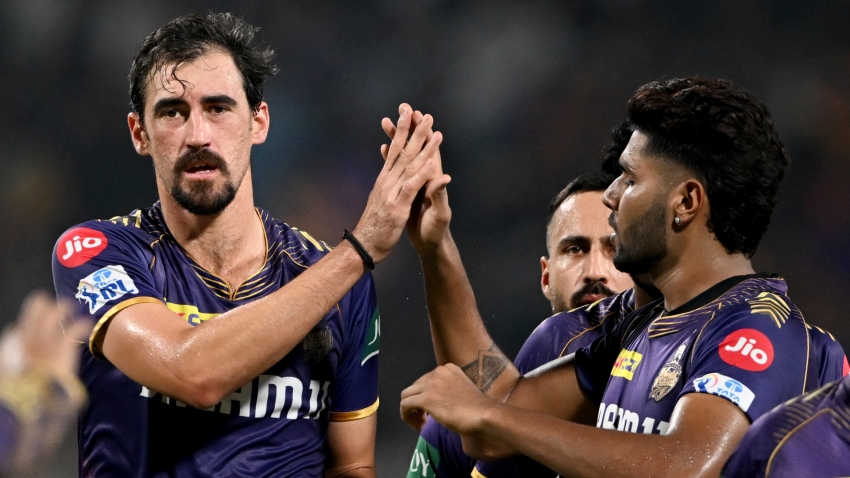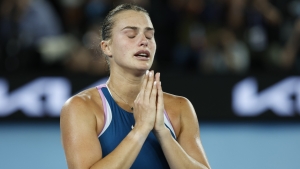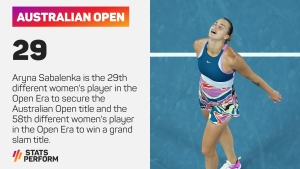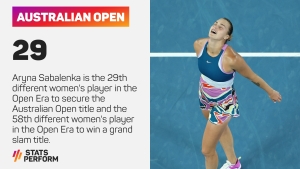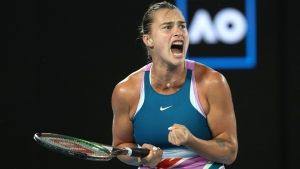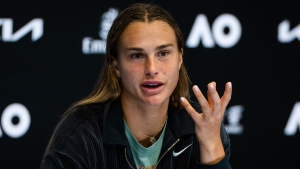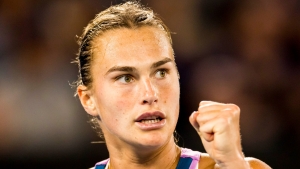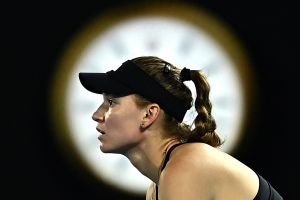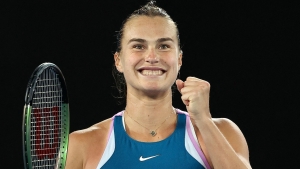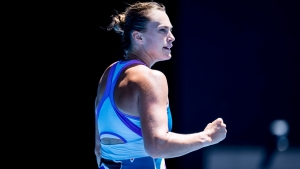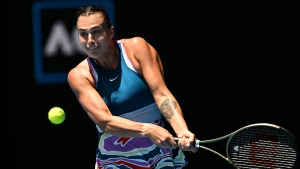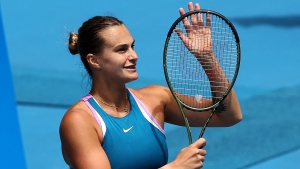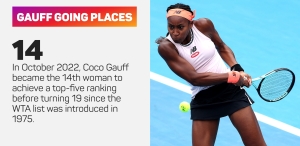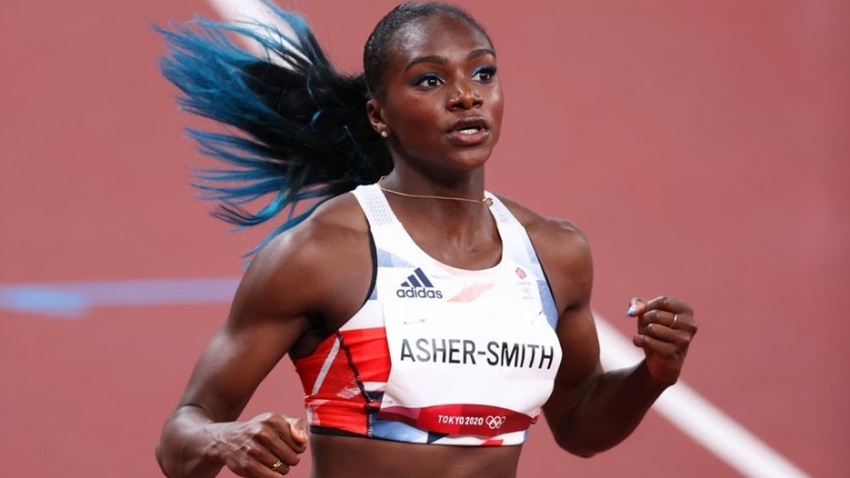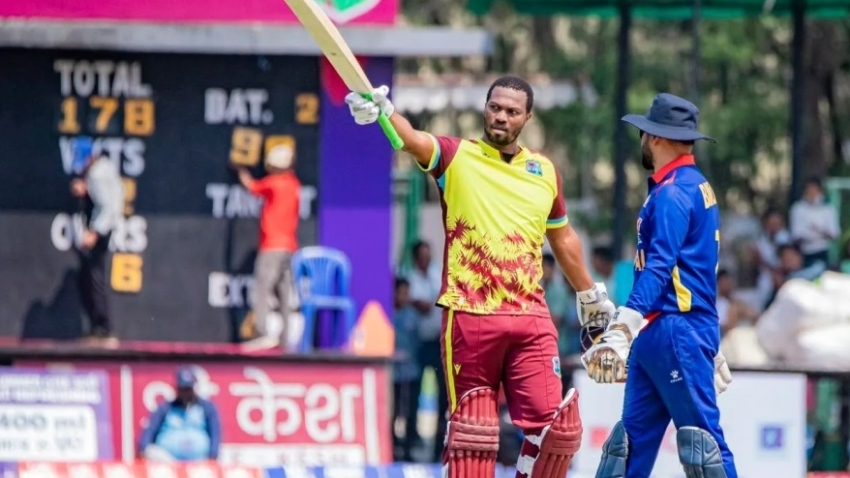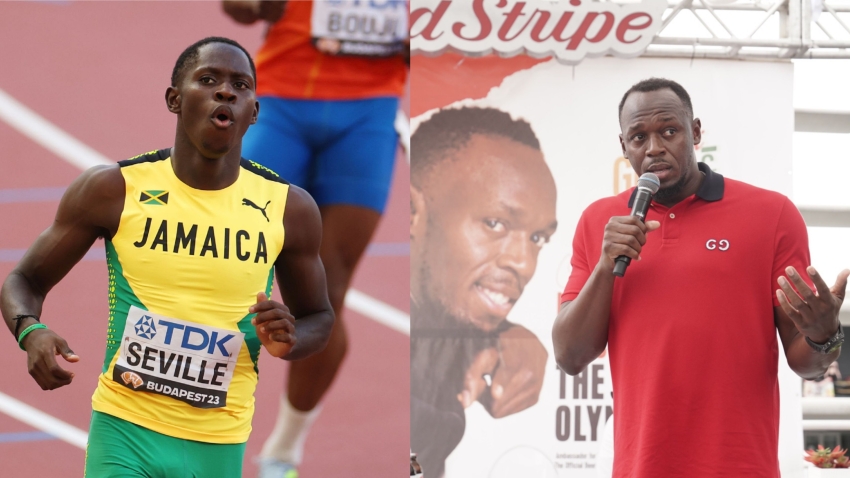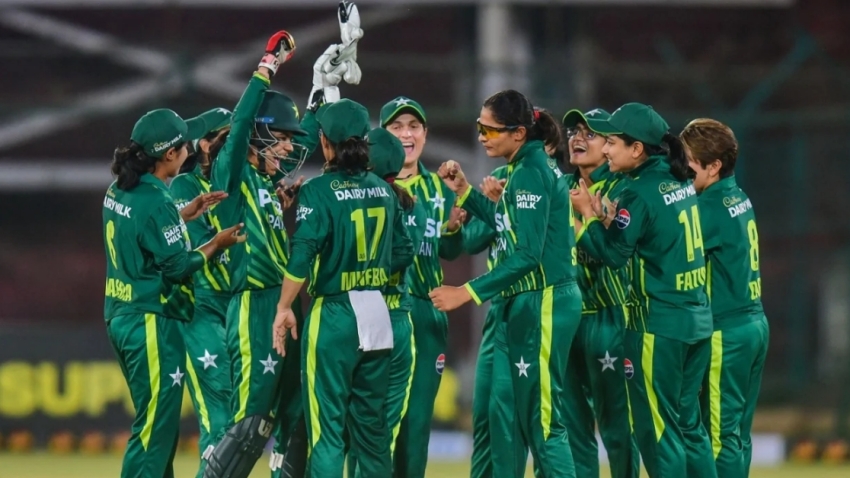Iga Swiatek starts the Australian Open as almost as strong a favourite to win the women's singles as Novak Djokovic is for the men's event.
Considering Djokovic is a nine-time champion in Melbourne, and Swiatek has never reached the final, that is some going and indicative of the Polish player's dominance on the WTA Tour over the last 11 months.
Swiatek ended last year with eight titles to her name, winning the French Open and US Open among them, and the 21-year-old has accrued more than twice as many ranking points as the next player on the WTA list, Ons Jabeur.
Her ascent to become the dominant woman in tennis has been remarkable, and Swiatek has also earned admiration for her efforts to raise funds for children in war-hit Ukraine.
But is she such an outstanding favourite for the Melbourne Park title as the odds-makers have it?
Since the US Open, she has been a champion at just one – modest by her standards – of the four tournaments she has contested, including the United Cup team event.
Here, Stats Perform looks at five others who might have a say in the destination of the year's first major.
Jessica Pegula
Swiatek was reduced to tears after a 6-2 6-2 drubbing by Pegula on January 6 at the United Cup, her first loss of the year.
She later described Pegula's performance as "the perfect match", and will hope the American cannot always rise to that level.
"It's always hard when you lose, especially when you're playing for the team and your country," Swiatek said at the time, explaining her post-match tears.
Swiatek had won all four of the matches they contested in 2022, dropping only one set, with quarter-final wins on the way to her two grand slam triumphs included in that set.
The result in Sydney, therefore, might have been just a blip, but Pegula is number three in the world for a reason, and Swiatek will surely want to avoid her over the coming fortnight.
Coco Gauff
Is now Gauff's time? There's a question that has been buzzing around the tennis circuit for at least a couple of seasons, despite the American being just 18 years old.
Time, it should be clear, is firmly on her side. She soared to fourth in the rankings in October but has slipped a little since, while remaining firmly established in the top 10.
Given her great talent, Gauff should be resident in the top 10 for many years to come, so we can afford to wait before watching her fly. The sometimes-erratic forehand remains in need of fine-tuning, and Gauff began this year with just two career singles titles to her name after missing out on a trophy in the 2022 season.
However, she reached a first grand slam final last June, losing to Swiatek in Paris, and began 2023 by capturing a title in Auckland where, as top seed, she made light work of the field.
The victory made her the sixth American player to secure three or more WTA-level titles before turning 19 in the last 40 years, after slam winners Monica Seles, Jennifer Capriati, Lindsay Davenport, Venus and Serena Williams.
That is some company for Gauff, who will face Katerina Siniakova in the first rout in Melbourne, to be keeping, and her time will come. It might even come in Melbourne.
Ons Jabeur
After finishing runner-up to Elena Rybakina at Wimbledon and Swiatek at the US Open, Jabeur is targeting a third successive slam final.
The Tunisian would win most popularity contests on the Tour, but she wants one of the big trophies now, and has to be seen as a strong contender in Australia.
Her preparations took a knock with a loss to 18-year-old Czech Linda Noskova at Adelaide International 1, but that will only have made Jabeur work harder in the build-up to the major.
She was gutted to have to pull out of the Australian Open with a back injury last year, and a first-round loss at the French Open followed, but Jabeur came good at the next two majors, albeit falling at the final hurdle.
Aryna Sabalenka
At this time last year, Sabalenka was in crisis, her serve a massive weakness as she struggled to deliver the ball safely.
She recovered from going a set down in three consecutive matches at the Australian Open before losing a rollicking tussle in round four with Estonian veteran and upset specialist Kaia Kanepi.
Sabalenka served a wretched 15 double faults in that match, which was sadly more or less par for her in the early stages of the 2022 season, but the Belarusian got her act together, overcome those yips, and finished the year strongly.
A semi-final run at the US Open was followed by an appearance in the WTA Finals title match, where she lost a close encounter with Caroline Garcia.
Sabalenka began this year not with the serving jitters, but with the Adelaide International 1 title, not dropping a set all week.
She has a big game and with it growing confidence. At the age of 24, she should be entering her prime years, and 2023 could be a special 12 months for the woman with the tiger tattoo.
Zheng Qinwen
The WTA's 2022 Newcomer of the Year winner, Zheng is a 20-year-old Chinese player who could soon follow in the footsteps of compatriot Li Na and begin scooping the biggest prizes in tennis.
How soon? Well, probably not quite yet, but then again very few picked out the then 54th-ranked Swiatek to win the 2020 French Open, the moment that launched her to stardom.
Zheng has rocketed to 30th in the rankings, having begun last year at 126th on the WTA list, and should be considered capable of halving her ranking over this season.
She first came to major prominence at the French Open, when she defeated Simona Halep and for a while also had Swiatek's number in their fourth-round match, winning the first set before menstrual cramps and a leg problem caused her to lose momentum.
The WTA Tour is a learning curve and slam-level success might not come immediately for Zheng, but that newcomer award came her way because she is a player shaping up to have a big say in the sport's future. Along with the likes of Gauff and Swiatek, she could still be a big factor in a decade's time.


